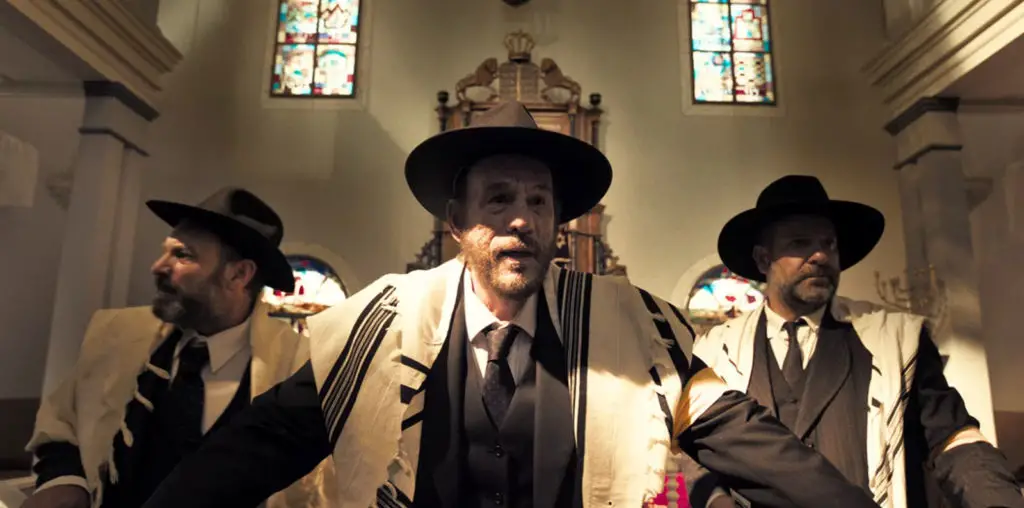
In an ideal world, the Hollywood elite who’ve wrecked motion pictures by turning the medium into an oversized video arcade would be forced to sit in a room and pay very close attention to “Home,” the debut feature film from Matt Zoller Seitz. The lessons learned in “Home” could easily save the cinema: the art of making great movies does not involve CGI trickery, wall-to-wall chaos, and oversized production values squashing undersized concepts. What is required is a basic understanding of the human experience and the ability to tell a story with intelligence, maturity and honesty.
Seitz, who is the sane film critic for the weekly New York Press (his colleague across the Press aisle is the irrepressibly zany Armond White), clearly understands what goes into making a fine film. You don’t need a ton of money (“Home” was completed in $30,000) nor a mammoth production (the film was actually shot in Seitz’s duplex apartment). Under very tight limitations, Seitz has brought forth a cinematic tone poem which explores the human experience with extraordinary clarity.
“Home” takes place at an all-night party in Brooklyn. Whether the neighborhood is charming or sleazy depends on who’s describing it. Roommates Susan and Rose are the hostesses, and their guest mix is a diverse grab-bag of personalites. Initially dominating the proceedings is an excessively talkative Tommy (Stephen T. Neave), whose intense Noo Yawk accent makes Joe Pesci sound like Noel Coward. Tommy doesn’t know when to stop talking (or tawking, as he would say), whether babbling endlessly on his business-related travels or in sizing up the other party guests. He is silenced, albeit briefly, when a comically rude guest rides his vanity by playfully mistaking him for being older than his actual age and suggesting Botox to smooth out his wrinkles. The sight of this character studying himself with worry in a bathroom mirror is priceless.
But as the party fills in, other intriguing guests arrive and get their turn in the spotlight. There’s a neurotic gay man who talks about moving to Canada and his long-suffering partner who keeps bringing him back from thoughts of exile in Ontario. Two buffed bulls get into a loud arm wrestling match which ends up with one lying on his back on the ground. An intense jazz devotee expounds on the joys of music in the most atonal conversation imaginable. A troubled couple begin the evening with frayed emotions and conclude it ripping at each other. A pair of New Jersey marrieds never miss a moment to praise the Garden State and knock New York City. Attractive yet mysterious people pass through the halls and rooms, tempting the guests to seek out their identities and stories (Melodia Hall-Smith is especially eye-catching and maddeningly elusive).
Circling the surroundings is an uninvited guest, a would-be playwright (Jason Liebrecht) who comes in the hopes of reuniting with his ex-girlfriend, only to catch the attention of the two hostesses. But he only notices one, much to the chagrin of the other.
Not unlike another recent party-based feature, Christian de Rezendes’ stunning “Getting Out of Rhode Island,” “Home” pinballs throughout the walls of the party to capture snatches of profound, bizarre and playful conversation. But whereas the de Rezendes film ends with a shattering crescendo when the festivities go badly awry, “Home” deftly lingers like a melody which takes its time fading into air. The film is melancholy but never mushy, wry but never cute. The dialogue is refreshingly adult, and the word “adult” is used in a thoroughly positive way.
In his press notes, Seitz cited such influences as Altman, Cassavetes and the early Linklater films. But knowingly, “Home” is dedicated to the late John Frankenheimer. One can easily see similarities between “Home” and Frankenheimer’s criminally-overlooked 1973 adaptation of “The Iceman Cometh.” Both films made an intelligent use of tight spaces and expansive ensembles to carefully dissect an emotional tapestry. Unlike “The Iceman Cometh,” “Home” lacks a single big dramatic moment. But it doesn’t really need it because there is a wealth of smaller dramatic triumphs of sly gestures, body language working at odds with spoken words, and minor goofiness (such as repeatedly blowing the rim of an opened beer bottle to create a rough whistle) which makes “Home” more humane (not to mention more human) than the vast majority of today’s movies.
